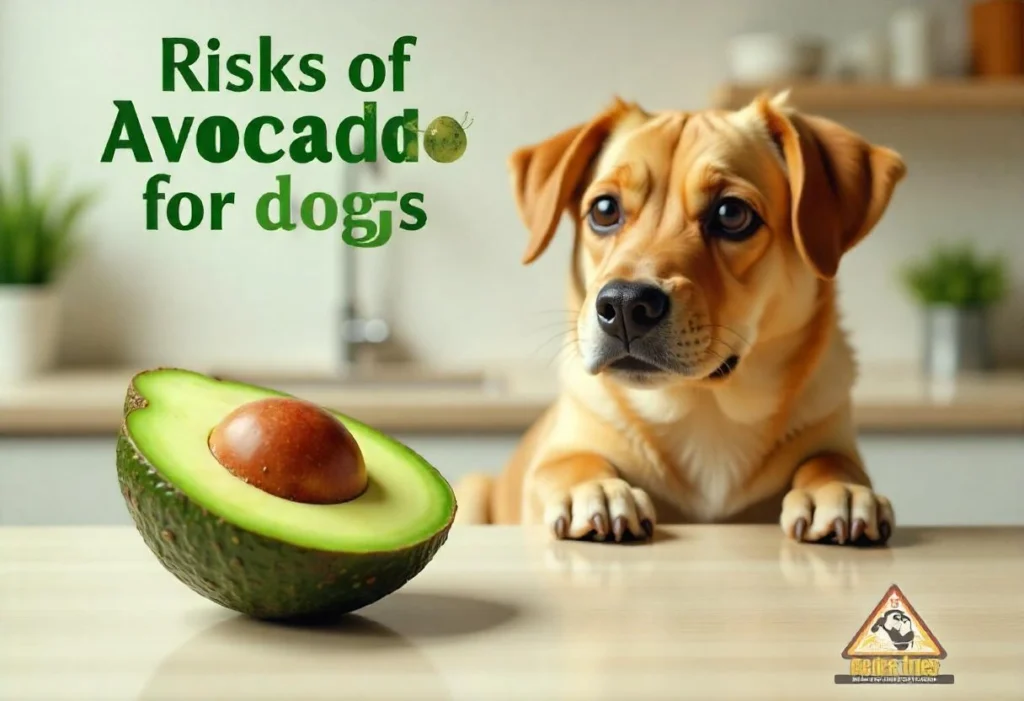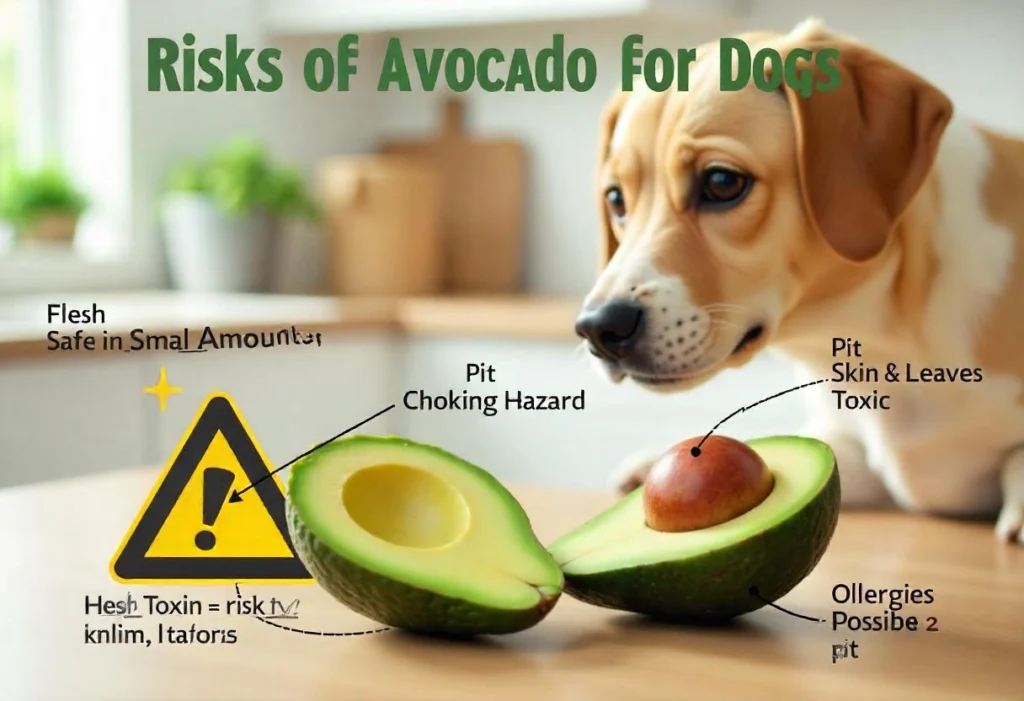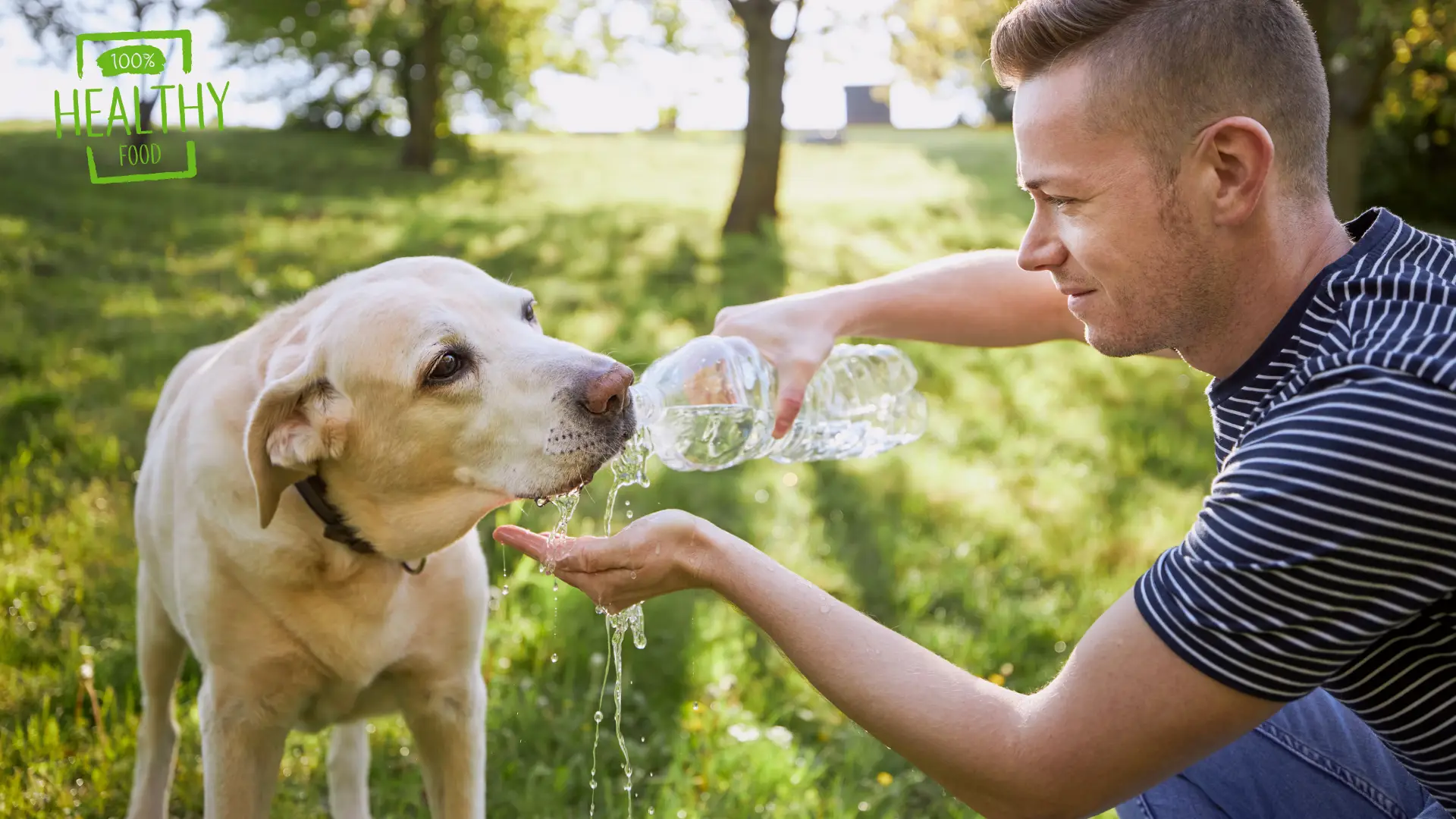
Can Dogs Eat Avocado Safely? Risks & Benefits Explained
If you’re a dog parent who treats your pup like family. You’ve probably asked yourself: “Can dogs eat avocado?” It’s one of those fruits we humans love, whether it’s smashed on toast or sliced into salads. But when it comes to your dog’s diet, things get a bit more complicated.
The short answer? Feeding avocado to your dog can be safe, but only if done the right way.
I still remember the first time my dog snuck a bite of my guacamole. Panic hit me like a wave. Was it toxic? Should I call the vet? I quickly learned that while avocado is nutrient-rich for humans, dogs process foods differently. You might have heard about the avocado pit or avocado seed being harm and that part is absolutely true. It’s not just a choking hazard; it can also cause serious blockages in your pup’s digestive tract.
But here’s the good news: the flesh of the fruit—when served in moderation and without the pit or skin—can be a healthy addition to your dog’s diet. Avocados contain healthy fats, fiber, and essential vitamins that may actually benefit your pup’s skin and coat. That said, it’s not something to toss into their bowl every day without thought.
So before you start feeding avocado to your dog, let’s break it all down together. I’ll walk you through the real risks, the potential benefits, and the best ways to serve this creamy green fruit safely.
Let’s keep our pups happy, healthy, and out of the emergency vet—one snack at a time.
Can Dogs Eat Avocado? Quick Answer
Let’s keep it simple—yes, dogs can eat avocado, but only the soft green part, and only in small amounts.
I’ve been a dog dad for years, and like most pet owners, I’ve had moments of worry over what my pup might grab off the counter. One time, mine licked the edge of a bowl of guacamole, and I freaked out. Guac often has onions, garlic, salt—stuff that’s toxic for dogs. That was the day I started really researching avocados and dogs.
Here’s what I learned: the flesh of the avocado, when plain and fresh, is safe for most canines. It has healthy fats, fiber, and vitamins like E and B6. Some dog food brands even use avocado oil to support skin and coat health.
But it’s not all good news. The parts you don’t want your dog near? The avocado pit, avocado skin, and even the bark or leaves of the avocado tree. These parts have higher levels of persin, a toxin that doesn’t usually affect dogs in small amounts, but still isn’t great. Eating these can lead to vomiting, diarrhea, or worse digestive issues.
Also, avoid anything processed. Store-bought guacamole isn’t made for dogs—it’s made for us, and often includes harmful extras.
So, when I share a little avocado with my pet, it’s about the size of a teaspoon, mashed plain, and mixed with their meal. No skins, no seeds, no extras.
If you’re curious about why some dog foods use avocado, this article explains how avocado oil helps dog health.
What Part of the Avocado Is Safe for Dogs?
When it comes to avocados, not every part is good for your pup. Let me break it down for you, based on what I’ve learned from years of feeding my dog (and keeping him safe).
- Flesh (the soft green part):
- Safe in small quantities.
- Packed with healthy fats, fiber, and vitamins like B6 and E.
- Great for their coat and skin when given as an occasional treat.
- I usually give my dog a spoonful, plain and mashed—nothing fancy.
- Skin:
- Not safe for dogs.
- Tough to digest, which can cause gastrointestinal issues like vomiting or upset stomach.
- I’ve learned the hard way to avoid it—no more letting him lick the peel.
- Pit (Seed):
- Choking hazard and intestinal blockage risk.
- Even if it’s not swallowed whole, it can cause big problems.
- I always make sure to toss it straight into the trash where my dog can’t get it.
- Leaves, Stems:
- These parts of the avocado tree are toxic due to persin.
- It can cause serious digestive issues or worse if eaten.
- I keep my dog far away from any fallen avocado leaves during walks.

Nutritional Benefits of Avocado for Dogs
If you’re anything like me, you want to give your dog the best, and that means feeding them foods that nourish their bodies. When it comes to avocados, they’ve got some surprising health benefits—if served the right way, of course. Over the years, I’ve added a little bit of avocado to my dog’s meals, and here’s what I’ve learned about the nutrients it brings to the table.
- Healthy Monounsaturated Fats:
These are the good fats, the kind that can do wonders for your dog’s skin and coat. After feeding my dog small amounts of avocado, I noticed his coat became shinier and softer. These fats also help support healthy heart function, making avocado a win-win for your dog’s overall health. Just remember, moderation is key—too much fat can lead to stomach upset. - Vitamin E:
You’ve probably heard that vitamin E is great for humans, but did you know it’s just as good for dogs? It’s a powerful antioxidant that helps protect cells from damage. I’ve seen my dog’s skin look better and feel smoother since adding a little avocado. It’s a small boost, but it makes a difference, especially as they age. - Fiber:
Just like us, dogs need fiber for digestion. While avocados are not a fiber powerhouse, a little can help keep things moving smoothly in your dog’s digestive system. I’ve found that adding a bit of avocado can help my dog’s stomach stay happy—no more tummy issues after meals. - Potassium:
Potassium supports muscle and nerve function, and it’s another reason I love giving my dog a small spoonful of avocado every now and then. It helps with energy, and I’ve seen a difference in his playfulness. It keeps his muscles in tip-top shape, especially as he’s gotten older.
Feeding your dog a little avocado can definitely help with their health, but remember—always serve it in moderation and stick to the safe parts (the flesh, not the skin or pit). If you’re ever unsure about adding new foods to your dog’s diet, check out this guide to healthy fruits for dogs for more info.
Risks of Feeding Avocado to Dogs
I love giving my dog a little avocado, but I’ve learned that there are a few risks to consider.
- Persin Toxicity:
Avocados contain persin, which is toxic to some animals. For dogs, it’s generally a low risk, but it can still cause an upset stomach in sensitive pups. Birds are especially vulnerable, so keep avocado away from them. - High Fat Content:
Avocado is full of healthy fats, but too much can lead to pancreatitis, especially in dogs with sensitive stomachs. I always keep portions small to avoid any issues. If your dog has a history of stomach problems, it’s best to skip avocado. - Choking Hazard from the Pit:
The avocado pit is a big choking hazard, especially for smaller dogs. If swallowed, it can get stuck in the intestines. I make sure my dog never has access to the pit. - Allergic Reactions:
Although rare, some dogs can have an allergic reaction to avocado. Watch for signs like rashes or digestive issues when trying it for the first time.
If you’re unsure, always check with your vet before feeding an avocado to your dog. For more on dog food safety, this guide to toxic foods can be helpful.
How Much Avocado Is Safe for Dogs?
When it comes to sharing avocado with your dog, it’s all about moderation. Over the years, I’ve learned that a little bit goes a long way, and that’s really the key.
I usually give my dog just a small slice or a tablespoon of the avocado flesh, depending on his size. For smaller dogs, a teaspoon or two is enough. Larger dogs can handle a bit more, but I always make sure not to go overboard. Even with bigger dogs, I keep the portions small.
Whenever I introduce something new to my dog’s diet, I always start with a tiny amount and keep a close eye on him. I look out for any signs of discomfort, like digestive issues or allergic reactions. Avocado is generally safe, but I’ve found that it’s better to be cautious and test it out first.
I don’t feed him an avocado every day. In fact, I limit it to once or twice a week, usually as a special treat. Avocado is high in healthy fats, but too much of it can upset his stomach or even cause weight gain. Keeping it occasional lets him enjoy the good stuff without overdoing it.
If you’re ever uncertain about how much to give your dog, don’t hesitate to ask your vet. And if you’re curious about other dog-friendly fruits, check out this list of safe fruits.
Signs of Avocado Toxicity or Allergy in Dogs
Even though avocado is generally safe for dogs in small amounts, it’s important to watch for any signs of discomfort. Here’s a quick breakdown of what to look out for if you suspect your dog may have a reaction to avocado:
| Symptom | What It Means | Action to Take |
| Vomiting | Your dog’s body might be rejecting the avocado. | Rare but serious, it could indicate an allergic reaction. |
| Diarrhea | Digestive upset due to avocado or too much fat. | Monitor your dog’s stool and limit avocado intake. If diarrhea persists, consult your vet. |
| Lack of Energy | Your dog may feel tired or lethargic due to a reaction. | If your dog is unusually sluggish, reduce the amount of avocado and seek advice from your vet. |
| Difficulty Breathing | Rare but serious, could indicate an allergic reaction. | This is an emergency—contact your vet immediately if your dog struggles to breathe. |
If you notice any of these symptoms after your dog eats avocado, it’s always best to consult your vet. Better safe than sorry when it comes to your pet’s health. For more information on foods to avoid for dogs, check out this guide on toxic foods.
Vet-Approved Tips for Feeding Avocado

As a dog parent who wants only the best for my pup, I’ve learned some important tips from vets on safely feeding avocado. Here’s what I’ve found works best:
Use Fresh, Ripe Avocado Only
It’s tempting to grab any avocado, but fresh, ripe fruit is what you want. I’ve learned that unripe or overripe avocados can cause tummy troubles. A nice, soft avocado ensures your dog gets all the benefits without any risk. Always give them the freshest you can find.
Remove the Skin and Pit Completely
This is a huge one. The skin and pit are not safe for dogs. I always make sure to carefully peel the avocado and remove the pit before offering it to my dog. The pit can be a choking hazard, and the skin can cause digestive issues. So, I make it a habit to keep those parts out of reach.
Mix a Small Amount Into Their Regular Food
Avocado should never be a daily snack. I always mix a small amount of avocado into my dog’s regular meals as a treat—maybe a teaspoon or so. It’s important not to overdo it because of the high fat content. I’ve found that occasional additions to their food are the best way to go.
Consult Your Vet Before Introducing New Foods
Lastly, before you start adding avocado or any new food to your dog’s diet, I highly recommend checking with your vet. Every dog is different, and your vet can give personalized advice based on your dog’s health and needs.
FAQs Section
Puppies can eat small amounts of avocado, but it’s best to avoid it due to their sensitive stomachs and developing systems.
Too much avocado can cause digestive upset, such as vomiting or diarrhea, and may lead to pancreatitis due to the high fat content.
Certain breeds, like those with sensitive digestive systems or pancreatitis-prone dogs, may be more affected by avocado than others.
No, dogs should not eat avocado toast, especially if it contains ingredients like garlic, onions, or salt, which are harmful to them.
Avocado is safe in small amounts, but the skin, pit, and leaves are toxic, so always remove them before feeding it to your dog.
Yes, dogs can eat bananas and avocados in moderation, but always ensure the avocado is properly prepared and avoid overfeeding.
Animals like birds, rabbits, and horses should avoid avocado as it contains a toxin called persin, which can be harmful to them.
Yes, avocado oil is safe for dogs in moderation and can benefit their coat, but it’s calorie-dense, so use sparingly.
If your dog ate avocado, monitor for symptoms like vomiting or diarrhea and consult your vet if any symptoms arise, especially if they consumed the pit or skin.
No, dogs should not eat avocado skin as it can cause digestive issues and is difficult for them to digest properly.
Conclusion:
Avocado can be a healthy treat for dog, but moderation is key. A small amount of fresh, ripe avocado provides fats and vitamins, but always remove the skin and pit to avoid risks like choking or digestive issues.
Before adding avocado to your dog’s diet, consult your vet—each dog has unique needs, and what works for one might not work for another. Prioritize your pet’s health and always be mindful of their specific dietary requirements.
In the end, avocado can be a fun, healthy snack when fed in moderation, so just keep it simple and always listen to your dog’s needs.




1 Comment
[…] Yes, Dogs Can Eat Avocado Safely […]